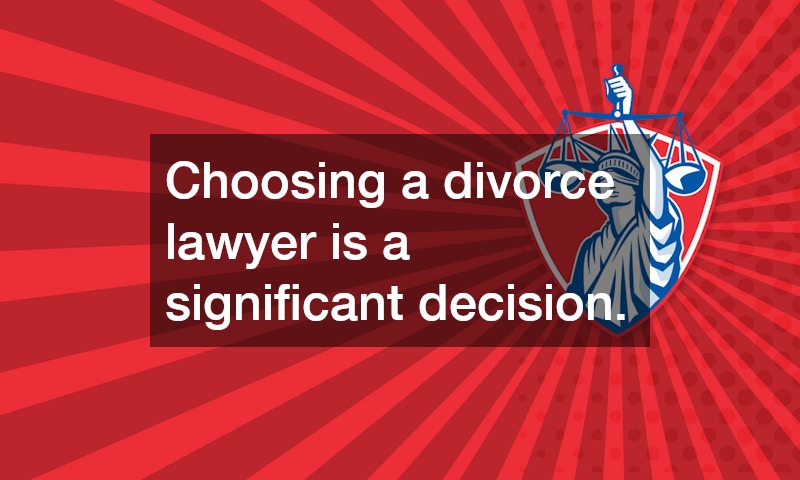
Going through a divorce can be an emotionally and financially challenging experience, and having the right divorce lawyer by your side is crucial. The process involves numerous legal nuances that could significantly impact your future. To ensure you’re making informed decisions, it’s important to ask your divorce lawyer the right questions at the outset.
Choosing the right lawyer can be daunting, but selecting someone who comprehensively understands your case is invaluable. It’s important to establish a good rapport from the beginning by engaging them with essential inquiries.
Let’s delve into the questions you should be discussing with your divorce lawyer.
1. What is Your Experience with Cases Like Mine?
One of the first things you should inquire about is the lawyer’s experience with divorce cases similar to yours. Every divorce case is unique, so it’s crucial to have a legal representative who has dealt with circumstances akin to yours. This not only gives you confidence but also ensures adept handling of intricate issues specific to your situation.
An experienced divorce lawyer will have familiarity with the local family court judges, which can be beneficial in strategically navigating your case. Knowing how judges have historically ruled on certain issues will allow your lawyer to formulate a more efficient strategy. This experience could make a substantial difference in outcomes related to custody battles or substantial asset division.
Moreover, a seasoned lawyer will understand the common pitfalls many divorcing couples face. They can provide proactive measures to avoid these issues, smoothing the process for you. When interviewing potential lawyers, ensure that they can provide examples from past cases that reflect both challenges and successful resolutions in similar situations.
2. What is Your Approach to Divorce Cases?
Understanding your lawyer’s approach when handling divorce cases is another crucial aspect to explore. Some lawyers may favor an aggressive stance, while others might lean towards negotiation and mediation. Your choice should align with your personal comfort and the dynamics of your specific divorce scenario.
A divorce lawyer with an assertive style might be ideal if you expect a contentious separation involving disputed issues. This type of approach could be essential for cases requiring strong courtroom representation. However, if preserving a cordial relationship with your ex-spouse is a priority, a more collaborative method could be beneficial.
Furthermore, lawyers who focus on mediation usually aim to help both parties reach an amicable agreement outside of court. This tactic not only saves time and money but can also reduce emotional stress. Discussing your lawyer’s preferred strategies can provide insight into whether they align with your ultimate goals.
3. What Are Your Fees and What is Included in Your Service?
Discussing the legal fees and what they encompass is vital when hiring a divorce lawyer. Legal costs can escalate quickly, and understanding the financial obligation upfront can prevent unforeseen expenditures. This discussion should include clarity on hourly rates, retainer fees, and any additional costs that might arise.
Inquire whether they provide flat-fee packages or if billing will be done hourly. This will help you plan your budget accordingly and avoid any financial surprises. Make sure to ask about what services are covered by these fees, such as court filings, consultations, and essential legal documentation.
A transparent discussion about finances also involves learning about potential additional costs that may not be immediately apparent. Ensure you understand the policy on billing for paralegal or administrative support that may be involved in your case. A clear financial roadmap is crucial for managing financial stress during the divorce process.
.

